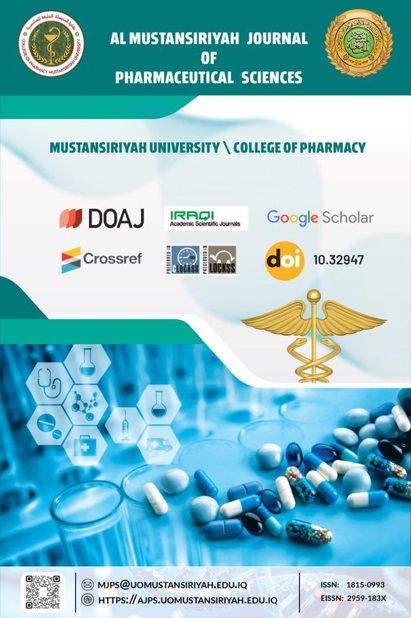Abstract
It is known that garlic cloves had antibacterial action on a wide range of
microorganisms both g (+) and g (-) bacteria. The antibacterial activity of garlic
is mainly attributed to allicin, the active principle of this vegetable.
The antibacterial activity of allicin is inhibited by different chemical and
physical agents.
No studies were available to elustrate the effect of ionizing radiation on
the activity of this compound. Allicin was water extracted according to AL
Delamy, and different concentrations of this extract were irradiated with
different doses of gamma-radiation from γ-cell 20. The results obtained
indicated that doses of radiation up of 3 megarad did not affect the antibacterial
activity of allicin, whereas higher doses, 5 megarad and up, will inhibit the
activity completely.
We conclude from these results that higher doses of radiation should not
be used for preservation of garlic cloves because of its inhibitory effect on the active principle of garlic, allicin
microorganisms both g (+) and g (-) bacteria. The antibacterial activity of garlic
is mainly attributed to allicin, the active principle of this vegetable.
The antibacterial activity of allicin is inhibited by different chemical and
physical agents.
No studies were available to elustrate the effect of ionizing radiation on
the activity of this compound. Allicin was water extracted according to AL
Delamy, and different concentrations of this extract were irradiated with
different doses of gamma-radiation from γ-cell 20. The results obtained
indicated that doses of radiation up of 3 megarad did not affect the antibacterial
activity of allicin, whereas higher doses, 5 megarad and up, will inhibit the
activity completely.
We conclude from these results that higher doses of radiation should not
be used for preservation of garlic cloves because of its inhibitory effect on the active principle of garlic, allicin
